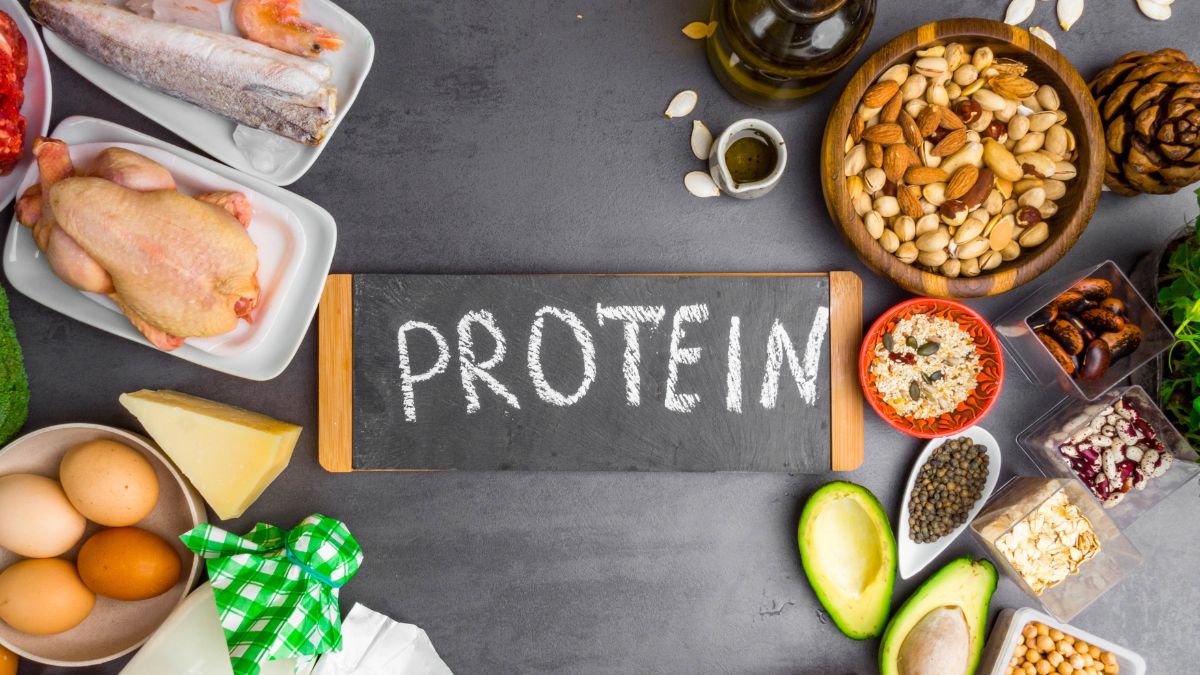
Protein is the building block of life. Everything is made up of protein, from our muscles to skin and hair. It plays a crucial role in the body's growth, repair, and maintenance. But do you know that our protein needs change as we age?
Table of Content:-
Talking to the Onlymyhealth team, Priti Korgaonkar, Nutritionist, AS-IT-IS Nutrition said, “From infancy to old age, the amount and type of protein required by our bodies varies significantly.” She spoke further about how protein needs shift across different life stages and what you can do to ensure you’re getting the right amount of this essential nutrient at every phase of life.

Infancy and Early Childhood
During infancy, protein is vital for growth and development. A study by Indonesian researchers found that a lack of dietary protein increases the risk of stunted growth in children by four times.
“Breast milk or formula provides the necessary protein in easily digestible forms. As infants transition to solid foods, it’s important to introduce protein-rich foods like pureed meats, beans, and dairy products,” said Korgaonkar.
Recommended Dietary Allowance For Infants: 1.5 grams per kilogram of body weight per day.

Childhood and Adolescence
In childhood, protein continues to be essential for growth and development, particularly during the rapid growth spurts associated with puberty. Korgaonkar said, “During these stages, protein needs are higher per kilogram of body weight compared to adults. Adolescents, especially those engaged in sports, might require more to support muscle development and overall growth.”
Recommended Dietary Allowance For Children Aged 1-3 years: 1.1 grams per kilogram of body weight.
For Children Aged 4-13 years: 0.95 grams per kilogram of body weight.

Adulthood
Once we reach adulthood, protein needs generally stabilise. “However, the protein needs can vary based on factors such as activity level, muscle mass, and overall health. For those who are physically active, particularly athletes or those engaged in strength training, protein needs might increase,” said Korgaonkar.
A 2013 randomised control trial by European researchers found that male athletes engaged in high-intensity training who ate a high-protein diet daily suffered much less respiratory infections.
Recommended Dietary Allowance For Most Adults: 0.8 grams of protein per kilogram of body weight.
For Physically Active Adults: 1.2-2.0 grams per kilogram of body weight.

Pregnancy and Lactation
Korgaonkar underscored that protein needs increase during pregnancy and lactation, to support the growth and development of the baby and the health of the mother. “Including a variety of protein sources, such as lean meats, dairy, legumes, and nuts, can help meet these increased needs,” she said.
Also Read: Here's How Protein Contributes To Balancing Hormones In Women
Recommended Dietary Allowance For Pregnant Women: 1.1 grams of protein per kilogram of body weight.
For Lactating Women: 1.3 grams per kilogram of body weight.

Old Age
“As we age, maintaining muscle mass becomes crucial for overall health and mobility. Older adults often experience a natural decline in muscle mass, known as sarcopenia. To combat this, protein intake becomes increasingly important,” said Korgaonkar.
Moreover, the Gerontological Society of America found in a study that people who consume higher amounts of protein have almost 6% stronger bones in their hips and spine.
Also Read: The Benefits of a High Protein Diet During Menopause for Women: Here’s What You Should Eat
Recommended Dietary Allowance For Elderly: 1.0-1.5 grams per kilogram of body weight.
Dynamic Nature Of Daily Protein Requirement
Certain life stages and conditions may require special attention to protein intake. Citing two examples, Korgaonkar listed:
- Individuals recovering from surgery, illness, or injury might need increased protein to aid in healing and recovery.
- Vegetarians and vegans need to ensure they’re consuming a variety of plant-based protein sources to meet their needs.
Korgaonkar concluded that protein needs are dynamic, changing across different life stages. By understanding these changes and adjusting your diet accordingly, you can support your body’s growth, repair, and maintenance throughout your life.
Also watch this video
How we keep this article up to date:
We work with experts and keep a close eye on the latest in health and wellness. Whenever there is a new research or helpful information, we update our articles with accurate and useful advice.
Current Version